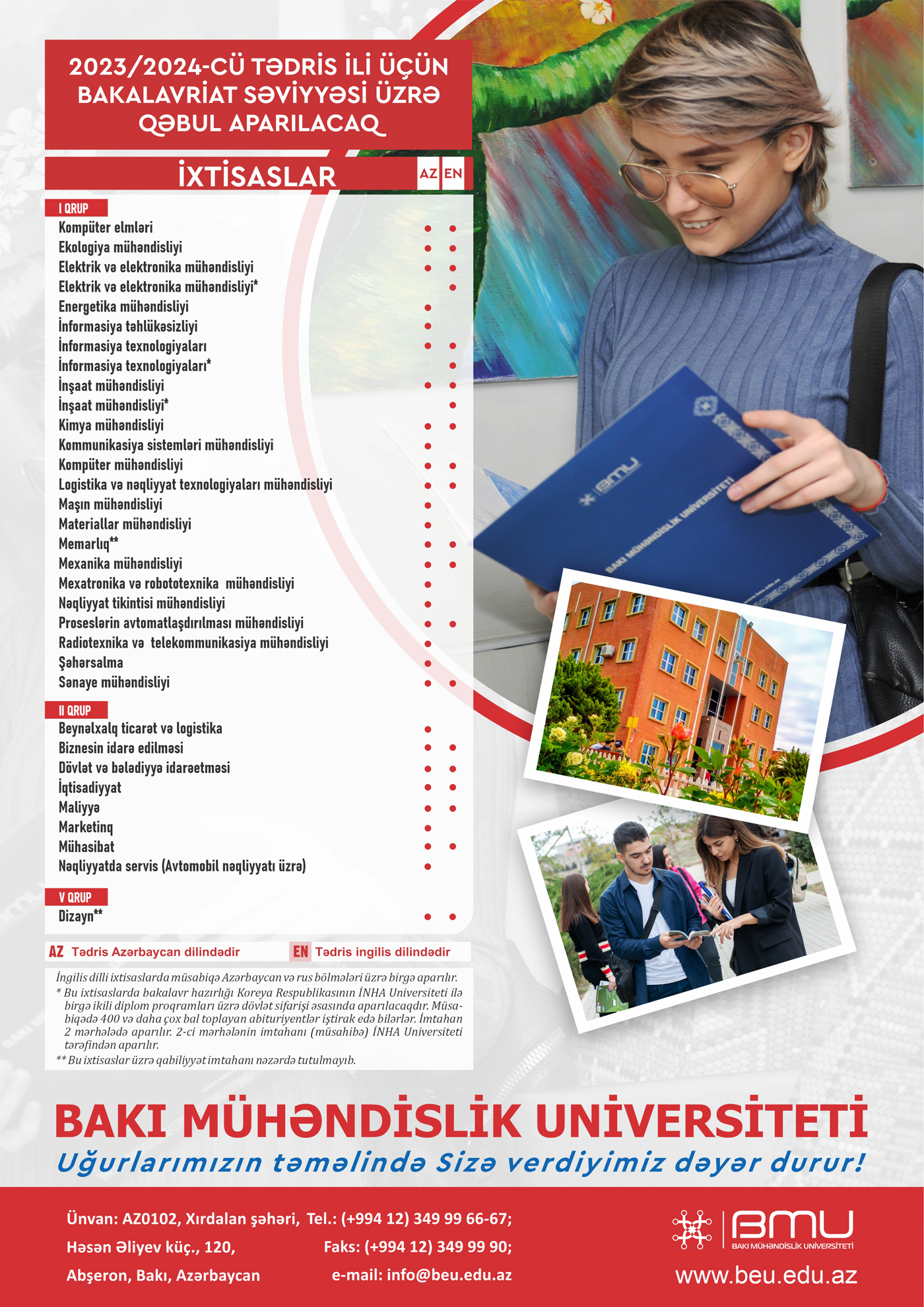BACHELOR’S DEGREE
Bachelor's training is the first level of higher education and provides wide-ranging specialist training in relevant specialties according to the classification of bachelor's qualifications (programs) approved by the Cabinet of Ministers of the Republic of Azerbaijan.
The standard duration of full-time education at the bachelor's level is 4-5 years. The normative duration of education is determined by the educational programs of individual specialties. As for the part-time type of part-time education at the undergraduate level, the duration of education is determined according to the student's individual study plan.
Graduates who have completed the bachelor's degree are awarded the "bachelor" higher professional-specialty degree. A graduate with a bachelor's degree can work in all other fields, except scientific-pedagogical activity in scientific institutions and organizations and higher education institutions. Those who complete this level of education can continue their studies at the master's level.
The tuition fee of children whose both parents passed away and who are deprived of parental care, as well as persons among them, are paid from the state budget during the period of their education in public, municipal and private secondary specialized educational institutions on a paid basis. Children whose both parents passed away and who are deprived of parental care retain this right even when they are adopted.
The academic year, as a rule, consists of two semesters (fall and spring). In addition, a summer semester can be organized for no more than 6 (six) weeks during the summer vacation.
The duration of the academic year in the form of full-time education is 40 weeks. Each semester consists of 20 weeks (including 5 weeks of exam session). The volume of the student's weekly load in the classroom and outside the classroom is 45 hours. At this time, audience hours should not exceed 30. The maximum volume of compulsory audience classes for the full-time type of face-to-face education is with educational programs for individual specialties, and for part-time education with educational programs for individual specialties and the student's individual determined according to the curriculum. As for the form of correspondence education, the volume of classroom lessons for students is 180-240 hours per year.
Students who have fulfilled all the conditions of the curriculum, including those who have successfully passed the prescribed current attestations (attestations by subject), are admitted to the final state attestation. The final attestation consists of the graduation final state exam (interdisciplinary) or the defense of the graduation thesis. The period allocated to the preparation and organization of the final attestation is 6 weeks.
240-300 credits are assigned to students at the undergraduate level, depending on the study period of the specialty (specialization). A student who collects the credits provided for in the educational programs of specializations is considered to have mastered that program. Those who have fully completed the curriculum of the bachelor's level educational program in higher educational institutions are awarded the "bachelor" higher vocational-specialty degree based on the decision of the final State Attestation Commission.
When the persons who graduated from secondary specialized educational institutions with high results and received a "sub-bachelor" degree continue their studies at the bachelor's level, the credits they have accumulated in the relevant subjects at the secondary specialized education level are taken into account by the higher education institution in the established manner.
